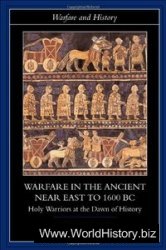King of Jerusalem (1131-1143) through his marriage to Melisende, eldest daughter of King Baldwin II.
Fulk (Fr. Foulques) was born around 1090, the son of Fulk IV Rechin, count of Anjou, and Bertrada of Montfort, and succeeded to Anjou in 1109. Fulk’s success in holding his hereditary lands, enlarging them by the annexation of Maine, and maintaining his position between the kings of England and France through a series of skillful alliances earmarked him as a capable ruler. These accomplishments, his ties to royal families, and his reputation for piety (marked by a pilgrimage to Jerusalem in 1120) made him an obvious candidate when Baldwin II of Jerusalem sought a husband for Melisende, his eldest daughter and designated heir, in 1127. Fulk ceded Anjou and Maine to his eldest son, Geoffrey Plan-tagenet (who was betrothed to Matilda, heiress to the throne of England), and married Melisende in 1129.
On his deathbed, Baldwin II designated Fulk, Melisende, and their son Baldwin III as joint heirs to the kingdom (1131). Disinclined to share power, Fulk increasingly cut his wife out of government and favored new men from Anjou over the established magnates of Jerusalem. Fulk was obliged to spend considerable time in northern Syria between 1132 and 1135. He put down an attempt by the Princess Alice to seize control of the principality of Antioch from its heiress, Constance, in alliance with Count Pons of Tripoli and Count Joscelin II of Edessa; later he returned to Antioch to attend to its defense and government. In 1134 Melisende’s cousin Hugh of Jaffa started a rebellion in an attempt to restore the queen’s royal power. Although Hugh’s revolt quickly fell apart, Fulk had to compromise with Melisende and her supporters by allowing his wife to share rule with him. These events showed how crises in the northern Frankish states might require Fulk’s attention, for a threat to any of them endangered all of Outremer. Yet if the king and the army headed north, Jerusalem was vulnerable to attack from Egypt. Three other issues further complicated the situation: Emperor John I Komnenos’s interest in reasserting Byzantine claims over Antioch; the ambition of Zangi, ruler of Mosul, to conquer all of Syria; and Damascus’s equally fervent wish to stay out of Zangi’s hands.
Fulk dealt with all these problems effectively, for the most part. Between 1136 and 1142, he built a ring of castles around the Egyptian fortress of Ascalon (mod. Tel Ashqelon, Israel) to guard Jerusalem’s southwestern flank. Several of these strongholds became the property of the Hospitallers and prevented Egyptian raids. The king also encouraged magnates to expand into areas served by important trade routes. A strategic series of alliances helped keep the other problems in check. John Komnenos came to Syria in 1137 and 1143, trying to enforce his suzerainty over Antioch. Fulk declined to help the prince of Antioch contest imperial authority and at the same time prevented John from claiming power over his own kingdom. He also allied with John against Zangi until their pact fell apart in late 1137. Soon Fulk found another partner in Muslim Damascus, which Zangi’s expansion in Syria finally pushed into an alliance with Jerusalem that lasted from
Fulk of Jerusalem,” Proceedings of the American Philosophical Society 133 (1989), 1-25.
1139 to 1144. When Fulk died in a hunting accident, however, it became clear that his solutions had not fully settled Outremer’s problems. Many of the same issues reemerged during the regency of Melisende and the majority of Baldwin III.
-Deborah Gerish
Bibliography
Chartrou, Josephe, L’Anjou de 1109 a 1151 (Paris: Presses Universitaires de France, 1928).
Mayer, Hans Eberhard, “Studies in the History of Queen Melisende,” Dumbarton Oaks Papers 26 (1972), 95-182.
-. “The Succession to Baldwin II of Jerusalem: English
Impact on the East,” Dumbarton Oaks Papers 39 (1985), 139-147.
. “Angevins versus Normans: The New Men of King
Kings Fulk and Baldwin III of Jerusalem,” Speculum 65 (1990), 860-877.
Murray, Alan V., “Baldwin II and His Nobles: Baronial Factionalism and Dissent in the Kingdom of Jerusalem, 1118-1134,” Nottingham Medieval Studies 38 (1994), 60-85.
Riley-Smith, Jonathan, “King Fulk of Jerusalem and ‘the Sultan of Babylon’,” in Montjoie: Studies in Crusade History in Honour of Hans Eberhard Mayer, ed. Benjamin Z. Kedar, Jonathan Riley-Smith, and Rudolf Hiestand (Aldershot,
UK: Variorum, 1997).




 World History
World History









